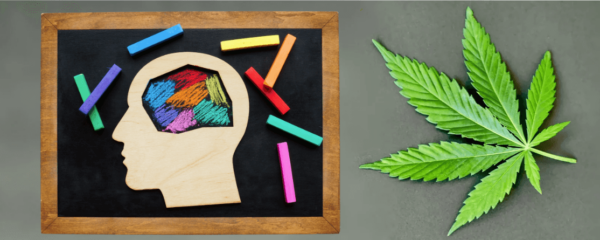Have a question? 06 70 73 89 02
🔞 Not for sale to under 18s
🔥 It's our anniversary: 30% off with the code 7YEARS!!! 🥳 ( excluding accessories and gummies)
Have a question? 06 70 73 89 02

Autism Spectrum Disorders (ASD) affect neurodevelopment and manifest themselves very early in life. In general, autistic disorders are detected before the age of 36 months. The expression of autistic disorders can have repercussions at several levels, varying from one person to the next. For this reason, we tend to speak of an autistic spectrum rather than autism, to take into account the multifaceted nature of these disorders.
CBD and its therapeutic effects have this in common with ASD, the multifaceted aspect of their action. Increasingly popular for this reason, the use of CBD as a supplement continues to grow in France and Europe, and its effects are better understood every day.
Want to know if people with ASD can benefit from using CBD? We answer in detail.
As we've said, ASD takes on a multitude of forms, because each person affected is different, and disorders are expressed differently.
To diagnose ASDs, despite their uniqueness, the scientific and medical community uses an "autistic dyad*" which defines the set of symptoms in two areas:
Since autism was first described in 1943, the definition, criteria and causes of autism have evolved and become much better known. Successive studies have identified the contribution of over 200 genes to the development of autism.
ASD affects approximately 1% of the world's population. And for reasons that are still poorly understood, autism affects more boys than girls. It is considered to affect approximately 4 boys for every 1 girl.
Depending on the individual, autism may cause some or all of the following symptoms to a greater or lesser degree:
The list of disorders affecting people with ASD is long enough, but it doesn't stop there. Because autism is an expression of Neurodevelopmental Disorders (NDD), and these disorders can themselves give rise to other disorders associated with autism. People with Autism Spectrum Disorders may also suffer from :
People with ASD and/or PDD may also present with various sleep and/or eating disorders.
More and more articles are extolling the therapeutic virtues of CBD. But it's not a miracle cure with a magic wand. While it's true that CBD can be the source of a number of health benefits, to understand its effects, you first need to understand how it works.
CBD works by interacting with the endocannabinoid system. This system, composed of a myriad of receptors scattered throughout the body, maintains the body's homeostasis (balance of biological functions and physiological characteristics), which influences the immune, nervous and digestive systems, as well as numerous physiological and cognitive processes.
CBD's interaction with endocannabinoid receptors may enable improved homeostasis, cascading through one or more of these systems and/or processes.

CBD's anxiolytic properties are among its most widely recognized effects. A number of studies have reported reductions in anxiety and stress in people of all ages, with and without disorders. These properties can also help alleviate symptoms of depression.
Concentration on a given task is very often impacted by the stress or anxiety that performing that task induces. By reducing feelings of stress and anxiety, CBD can help improve concentration.
Just like concentration, falling asleep and sleep quality are affected by anxiety and stress, and can be significantly improved by the action of CBD. But that's not the only effect. People believe that CBD, by influencing SEC, may also help to prolong deep sleep, the most restorative phase of sleep, which contributes in particular to regulating metabolism, boosting the immune system, consolidating memory and learning, concentration and emotional balance.
This is one of the areas where CBD research is most encouraging and comprehensive. According to studies, CBD can significantly reduce the frequency and severity of certain types of seizures. It is effective against certain types of epilepsy that are refractory to treatment, and also acts as a complement to certain medications.
So much so that in 2018, the FDA (US Food and Drug Administration) authorized the sale of Epidiolex, a CBD-based drug, to treat certain forms of refractory epilepsy.
Appetite stimulation is one of the most well-known and widely shared symptoms of CBD and cannabis consumption. By influencing the SEC, CBD impacts the digestive system. Depending on the case and the variety, CBD can induce the sensation of hunger to a greater or lesser extent, making it possible to combat certain eating disorders.
Before anything else, it's very important to talk to your child's doctor. CBD can lead to drug interactions that may affect current treatments.
Secondly, we need to bear in mind that ASDs are disorders from which there is no cure. The aim is therefore to reduce or stabilize symptoms, to help sufferers live better.
Finally, if no contraindications are issued by your doctor, then you can give your child CBD according to his or her recommendations.
ASDs are much more widespread than might first appear. These multifaceted disorders can create physiological imbalances that impact on the lives of sufferers on several intrinsically linked levels.
While there is no cure for ASD, there are steps that can be taken to reduce symptoms and help sufferers live better.
In this, CBD can be an option. Alleviating stress, helping to sleep better, eating better, CBD can help create a favorable balance impacting some or all of the symptoms.
We hope you've enjoyed this article and found it useful. If so, don't hesitate to consult our other blog articles to learn more about the world of CBD.
*Dyad definition: a set of two elements. The term "Triad" is used when the set contains three elements.